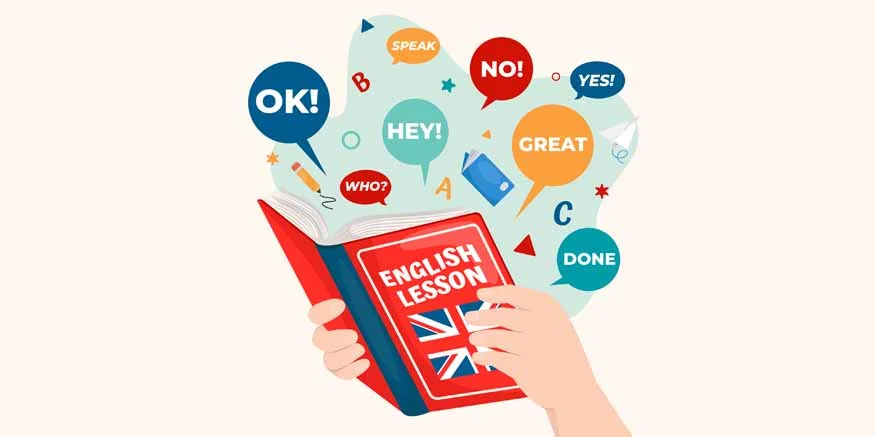A to Z might be just 26 letters but between them they hold over 270,000 words!
Yep, that is how many words you can find in the Oxford English Dictionary – all of them just different permutations and combinations of only 26 humble letters! Isn’t that absolutely fascinating?
It comes as no surprise then that the scope of vocabulary is vast and mastering it can easily seem like a long road. Especially for your child who is just learning to understand the beauty of language and its myriad words for expression.
But you can bridge the gap. You can make the road to improved English vocabulary shorter.
How? Keep reading and you will find out!
- Make them read books, books and books
- Have them carry a dictionary
- Use good vocabulary when you talk to kids
- Make kids listen to parliamentary debates
- Delve into the origin story of words
- Teach them synonyms
- Encourage kids to spin a yarn
- Turn words into games
If you want your kids to turn into vocabulary champs, there is no better formula than making them read lots of books. And we mean LOTS. The ‘more the merrier’ principle here definitely applies. Books are a treasure trove of new words and new ways of expressing old (or even new) ideas, which kids can easily incorporate into their daily lives. Think of it as vocabulary practice that is also entertaining! A bonus benefit? It can get kids to develop a lifelong love affair with books!
Along with a pocketable notepad and pen!
You see, reading books can pique kids’ curiosities in more than one way. Yes, sure they will be eager to find out what happens next (whether the hero wins, the mystery is solved or the ghost captured!), but they would also be interested in knowing what that new word means that they just came across.
And that is where having a dictionary comes in handy! Whenever kids read (or hear) a word they do not know about, they can quickly look it up in a dictionary and make a note of its definition. Having a hand scribbled list of words with their meanings can act as a good reference point for kids to revisit difficult words and enhance English vocabulary.
This is like “monkey see, monkey do” but only nicer! The thing is when you use a broader range of words when talking to kids, you end up leading by example. And we all know the magic effect that can have on children.
Anyway, to get back to the topic, when you use new words in the context of a conversation, kids can get a better sense of how to use those very words the next time in their chat with a friend or a family member.
Do not be afraid to use difficult words, though. Kids would only resort to their dictionaries and little notepads to know the definition, which will definitely reinforce their retention of said word. It’s a great vocabulary practice idea!
Be it American or British. Especially if kids belong to middle or high school. The reason for this is because watching these debates will not only expand the worldview of children but will also improve English vocabulary.
To be a debate-winning good politician, leaders need to have solid oratory skills, which includes having a more than vast vocabulary rich with idioms and expressions. If kids regularly listen to and understand these words, idioms and expressions, they are bound to pick them up.
Also read: Developing Academic Language: Tips & Examples
It is hard to get some kids excited about new words to improve vocabulary with books and dictionaries. So how do you pique their curiosity? By turning new and difficult words into an interesting story!
You see, each word has an origin story, which can be a fascinating peek into different customs, cultures, traditions and languages. For example, did you know that the English word “bangle” comes from the old Hindi word “bangli”, which literally means glass bracelet? See what we mean by fascinating!
The next thing you can do to enhance English vocabulary among kids is to teach them the beautiful grammar rule of synonyms.
As we all know, a single word can have many related words which mean the same thing, i.e. synonyms. Like joy is synonymous with happiness. Like sadness is synonymous with sorrow. Like fury is synonymous with anger. It is like each word has a family of cousins that may look and sound different but belong together!
Teaching kids synonyms is bound to make their vocabularies, sentences and ways of self expression richer!
See what we did there? Instead of saying ‘write a story’, we said ‘spin a yarn’. That is the power of synonyms! But we are getting ahead of ourselves. Back to the point, writing stories is one of the best ways to get kids to use words to improve their vocabulary.
Since story writing challenges kids to use their creativity, they will be tempted to scribble a tale incorporating all the new words and expressions they have learned, putting them into practice and further solidifying their abilities to construct a narrative, flesh out characters and improve self expression.
Also read: Opposite Words for Kids – Details & List
There is no dearth of word games out there and they can be great tools for a little bit of vocabulary practice! Be it offline games such as word jumbles, scrabble and crosswords or online word games such as trivia challenges or word puzzles, gamifying expanding vocabulary is sure to be a hit with kids! Not to mention super effective too.
One thing though, vocabulary practice should be a daily affair as consistency is how kids improve. Trust us, consistency is a rule we absolutely follow in our classes at EuroSchool, from junior to high school. Visit us to know more!









